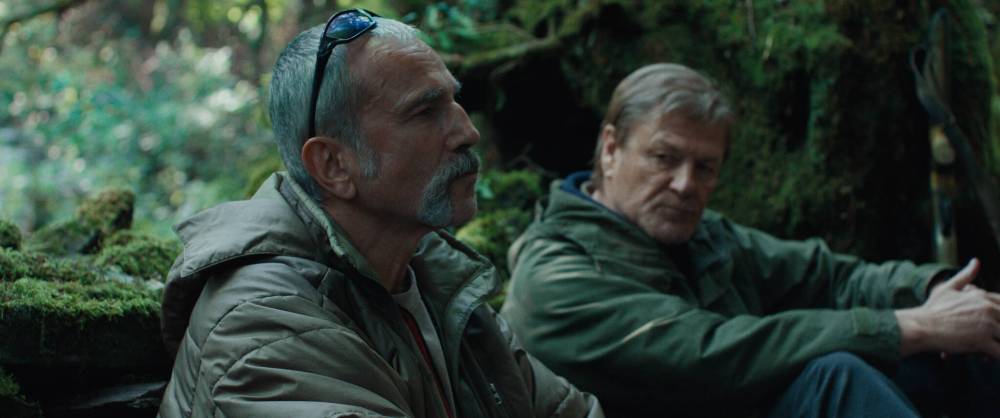Exhausting tale of family strife no match for actors’ talents
Advertisement
Read this article for free:
or
Already have an account? Log in here »
To continue reading, please subscribe:
Monthly Digital Subscription
$0 for the first 4 weeks*
- Enjoy unlimited reading on winnipegfreepress.com
- Read the E-Edition, our digital replica newspaper
- Access News Break, our award-winning app
- Play interactive puzzles
*No charge for 4 weeks then price increases to the regular rate of $19.00 plus GST every four weeks. Offer available to new and qualified returning subscribers only. Cancel any time.
Monthly Digital Subscription
$4.75/week*
- Enjoy unlimited reading on winnipegfreepress.com
- Read the E-Edition, our digital replica newspaper
- Access News Break, our award-winning app
- Play interactive puzzles
*Billed as $19 plus GST every four weeks. Cancel any time.
To continue reading, please subscribe:
Add Free Press access to your Brandon Sun subscription for only an additional
$1 for the first 4 weeks*
*Your next subscription payment will increase by $1.00 and you will be charged $16.99 plus GST for four weeks. After four weeks, your payment will increase to $23.99 plus GST every four weeks.
Read unlimited articles for free today:
or
Already have an account? Log in here »
Ronan Day-Lewis makes his directorial debut in this exhausting, emotionally gruelling British drama about a missing father — an enigmatic man named Ray who has been holed up in a cabin in the forest for years, leaving behind a family who waits for his return.
The best thing about Anemone is that it stars the filmmaker’s own father, actor Daniel Day-Lewis, who — rather like his character — disappeared eight years ago into a mysterious retirement and now comes back to the screen to remind us how good he is.
The worst thing about Anemone is that the overly schematic, thuddingly symbolic script never matches the elder Day-Lewis’s genius.

Focus Features
Daniel Day-Lewis (left) and Sean Bean play embattled brothers in Anemone.
The film begins with a series of children’s drawings of the Troubles — Irish flags, British soldiers, guns and bombs. Cutting to a working-class home in a town in the north of England, it then tracks the ways the history of Northern Ireland has bled into the present — and into the complicated relationships between fathers, sons and brothers.
Nessa (The Whale’s Samantha Morton) and her troubled son Brian (Samuel Bottomley) are in crisis, his skinned knuckles suggesting some kind of violence. Her partner, Jem (Sean Bean of Game of Thrones), heads out on a motorcycle with a coded message and some geographical co-ordinates.
He’s on a mission to bring back Ray, Brian’s father and Jem’s brother, but the deeper journey here involves trying to understand why Ray turned his back on his family almost two decades before.
Jem and Ray’s reunion is uneasy. Jem is a devout Catholic — he has a back tattoo that reads “Only God Can Judge Me” — while Ray has rejected his faith. Jem talks about their dead father with respect, while Ray remembers only his abuse.
The men seem like brothers when they’re doing physical things. There’s a worn-in familiarity to their movements when they’re swimming, hunting, drinking, roughhousing or even just brushing their teeth side by side.
But they seem unable to talk. Words come between them.
Ray’s initial dialogue is mostly confined to variations of “eff off,” but when he finally cracks open, Day-Lewis has two extended monologues, fierce and precise, driven by lacerating emotion and sheer technical brilliance.
Bean’s role is more reactive — mostly he watches and listens — but his unshowy work is equally good.
Unfortunately, these powerhouse performance moments feel self-contained, more like really impressive acting auditions than integral parts of the larger story.
In the same way, Ronan Day-Lewis’s directing style has flashes of visual virtuosity, with some spectacular shots, particularly of the natural world. There are fields of long grass shaken by the wind, dark lowering clouds, the cold and the grey sea. He also drops in some surreal images — a luminous, amorphous creature, a floating woman — that look striking but feel unmoored from the narrative.
And that’s the central problem with this frustrating film. The script — co-written by Ronan Day-Lewis and Daniel Day-Lewis — is never compelling enough to match those isolated instances of the men’s skills, as director and actor.
The story is often awkward and overly obvious. When it comes to themes of intergenerational trauma, however, and this family’s tragic inheritance of violence, passed from father to son, it remains oddly unclear.
Examining images of masculinity — the hard man, the silent man, the solitary man — Anemone can’t quite decide whether it’s a deconstruction of these tropes or a deification.
alison.gillmor@freepress.mb.ca

Studying at the University of Winnipeg and later Toronto’s York University, Alison Gillmor planned to become an art historian. She ended up catching the journalism bug when she started as visual arts reviewer at the Winnipeg Free Press in 1992.
Our newsroom depends on a growing audience of readers to power our journalism. If you are not a paid reader, please consider becoming a subscriber.
Our newsroom depends on its audience of readers to power our journalism. Thank you for your support.


